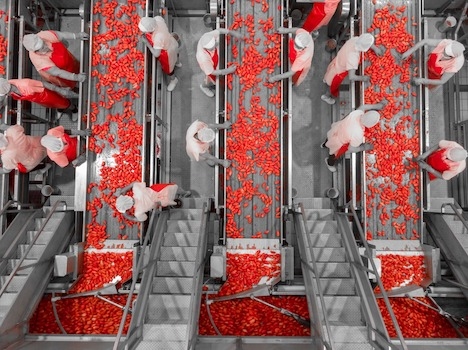Respect for your privacy is our priority
The cookie is a small information file stored in your browser each time you visit our web page.Cookies are useful because they record the history of your activity on our web page. Thus, when you return to the page, it identifies you and configures its content based on your browsing habits, your identity and your preferences.
You may accept cookies or refuse, block or delete cookies, at your convenience. To do this, you can choose from one of the options available on this window or even and if necessary, by configuring your browser.
If you refuse cookies, we can not guarantee the proper functioning of the various features of our web page.
For more information, please read the COOKIES INFORMATION section on our web page.


 As a result, the capacity to supply products is increasingly limited. "More than 70% of the production of Italian agricultural and livestock companies is destined for the food industry," Giansanti has emphasized. "The agri-food sector as a whole is the country's leading economic sector with an annual turnover of more than EUR 540 billion and 3.6 million jobs." The current situation urgently requires "a strong and exceptional intervention in order not to jeopardize the recovery of the economy and employment. Export volumes could also be reduced."
As a result, the capacity to supply products is increasingly limited. "More than 70% of the production of Italian agricultural and livestock companies is destined for the food industry," Giansanti has emphasized. "The agri-food sector as a whole is the country's leading economic sector with an annual turnover of more than EUR 540 billion and 3.6 million jobs." The current situation urgently requires "a strong and exceptional intervention in order not to jeopardize the recovery of the economy and employment. Export volumes could also be reduced." In fact, the entire agri-food chain is affected by the increases, from the fields to the consumers, through industrial processing and distribution. But in a country like Italy, where 85% of goods are transported by road, the increase in gasoline and diesel has a snowball effect on household spending and on the operating costs of companies.
In fact, the entire agri-food chain is affected by the increases, from the fields to the consumers, through industrial processing and distribution. But in a country like Italy, where 85% of goods are transported by road, the increase in gasoline and diesel has a snowball effect on household spending and on the operating costs of companies. 





























